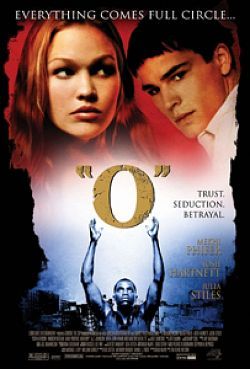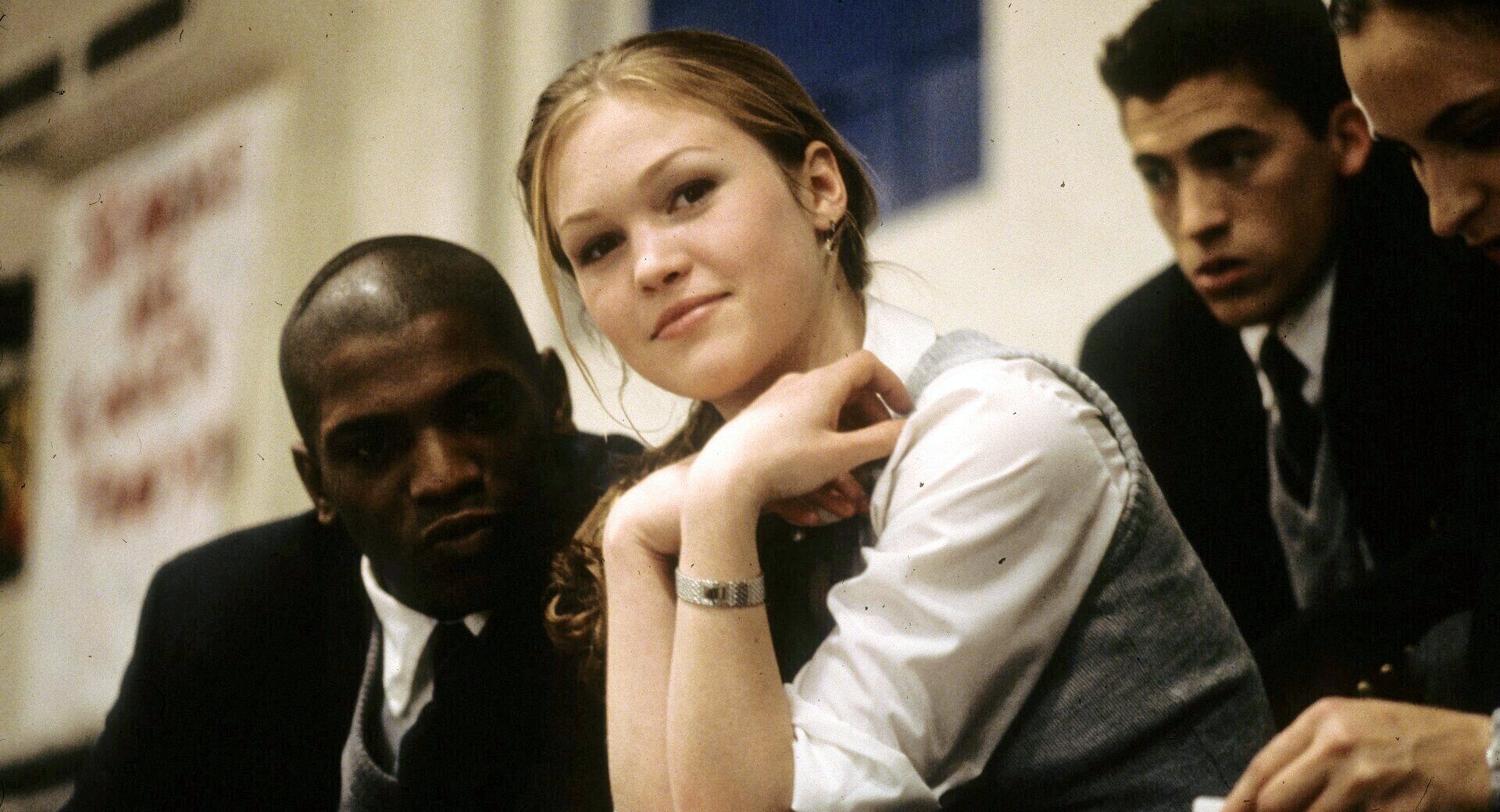O
 for violence, a scene of strong sexuality, language and drug use.
for violence, a scene of strong sexuality, language and drug use.
Reviewed by: Carole McDonnell
CONTRIBUTOR
| Moral Rating: | Very Offensive |
| Moviemaking Quality: |
|
| Primary Audience: | Adults |
| Genre: | Romance Drama Thriller Adaptation |
| Length: | 1 hr. 35 min. |
| Year of Release: | 2001 |
| USA Release: |
May 26, 2001 (festival) August 31, 2001 |




Teens! Have questions? Find answers in our popular TeenQs section. Get answers to your questions about life, dating and much more.

What is SEXUAL IMMORALITY? Answer
SEXUAL LUST outside of marriage—Why does God strongly warn us about this? Answer
PURITY—Should I save sex for marriage? Answer
TEMPTATIONS—How can I deal with temptations? Answer
How far is too far? What are the guidelines for dating relationships? Answer
| Featuring |
|---|
|
Mekhi Phifer Josh Hartnett Julia Stiles Martin Sheen John Heard Rain Phoenix Elden Henson |
| Director |
|
Tim Blake Nelson |
| Producer |
|
Chickie the Cop Daniel Fried Productions See all » |
| Distributor |
The tragedies of Shakespeare, however great they might be, don’t always ring true. Perhaps, we are too removed from the play’s period to comprehend the full scope of a tragedy. Rarely do we truly feel the fear or empathy. However, in “O” we do. Aristotle wrote that a real tragedy evokes a catharsis. He defined a catharsis as a combination of empathy and fear. We sympathize with the characters and are afraid because we could see ourselves or someone we know in their predicament. This is one of the best films of the summer and like “A.I.”, it is a philosophical tearjerker. We want to cry because the world is sometimes such a terrible place.
The film “O” is based on Shakespeare’s tragedy, “Othello”. But whereas Shakespeare’s “Othello” was a war story set in Venice, “O” is set in an academic setting. In “O”, Odin James (Meki Phifer) is a champion high school basketball player, beloved by the beautiful and popular Desi (Julia Stiles) and best friend—he thinks—of Hugo (Josh Hartnett.) The transfer to the high school setting works admirably for modern day audiences. Where else would hormonal rage, jealousy and social hierarchy work to create such a tragedy? In Shakespeare’s play, the villainous Iago admits he doesn’t quite know why he dislikes Othello. In one scene he says rumors are around that Othello cuckolded him. In another, he mentions his jealousy. It is possible that Iago was racist. After all, Shakespeare, also wrote that great speech against anti-semitism in “The Merchant of Venice”. But, in Elizabethan times, was there a word for the kind of hatred, jealousy, discomfort and fear that we all have come to call racism?
Jealousy and racism share a common trait. They are pumped up by a perverse sense of righteous indignation. We feel something has been taken from us and we feel a dislike for something we perceive as unfair. Both the jealous and the racist believe that life has wrongly given something to someone else. The question is: does the jealousy and fear come before the racism or do all these evils arrive hand in hand? On the whole, racists and jealous persons do a great deal of hating. Their actions might be a smoldering hateful look which may or may not hurt its recipient. But that’s about all. In Hugo’s case, his jealousy spurs him to action. Hugo yields to temptation, and not just to an angry look. Hugo is methodical, subtle, and downright sneaky.
In Shakespeare’s play—and in this film—everyone has lost something. The characters want honor, respect, daughter, father, lover. Everyone is concerned with losing something/someone and wanting it back. Only Hugo, however, does something about it. In this adaptation, Hugo is jealous of Odin James (O.J.?) because of his dad’s attentions. We dislike Hugo’s plotting and scheming and yet—like many of the high school shooters of the recent years—he is not someone the audience truly dislikes. We keep feeling that if only his dad, Duke (Martin Sheen), the win-oriented coach, would honor, respect and cherish the kid just a little bit more, then the tragedy would be averted. But that is not to be. Hugo has lost his bearings and it is a trifle too late for any attentions from Duke to bring him back.
The film is about the tensions in American high schools. Racism, grades, hormones all play into the youth culture. Star athletes get away with a lot. Some people might even say that star black athletes get away with a lot. Like Othello, Odin is also black. Desi is white. No one makes a big deal about this. It isn’t necessary. Except for the imagery of the white doves and the black hawk, there is an undercurrent of subtle racism in the film. The characters are politically correct. But that doesn’t make them honest. No one comes out and shows their racism unless they feel anger or camaraderie with some other character. This is America where everyone is trying his/her best to behave himself. Interestingly, the characters are human and are neither all good or all bad. That is, there are no characters whose actions are all black or all white. All the athletes are a privileged set who are quite capable of treating high school losers badly.
Perhaps kings and princes and warrior-soldiers are too above us for us to truly relate to their quandaries. After all, who can understand the grievance of a seminarian prince whose mother has married his uncle? Without a belief in the divine right of kings, the precepts in Leviticus against marrying one’s brother’s wife, the back history of a king who did just that and regretted it …and a belief that demons walk the hurt with the intent to deceive innocent God-fearing people, “Hamlet” is merely the story of another confused angry person. The tragedy of school killings like the one at Columbine High School, raging youthful testosterone, the history of American and European racism and the cruel hierarchy of high school all have contributed to a tragic and relevant updating of “Othello”. Anyone who remembers sitting on the sidelines while other people were honored will feel for the villain Hugo. Anyone who knows that teenagers are ruled by their hormones will understand how a tragedy could happen. The film is wonderfully real. The language is offensive (Kids-in-Mind report 61 F-words… 4 religious profanities, 3 religious exclamations), but it is also real. Unfortunately, this is how most teenagers, white or black, speak.
Christians will understand the nature of temptation and man’s attempt to set matters right by doing the wrong thing. Christian parents will understand how dangerous those teenage years truly are. There are sex scenes (of course) including an interracial couple. it’s sex outside of marriage that’s wrong here, not the racial mix (see our “Racial Issues” section). The screenwriter, Brad Kaaya is not a known name. After this film he will definitely be known. Technically, this is one of the best films of the summer and one of the better Shakespearean adaptations. But be cautious—there is plenty of potentially offensive content.


[5]
[Very Offensive / 2½]
[Very Offensive / 5]
[Average / 4½]
[4½]
[Very Offensive / 4]



My Ratings: [Very Offensive / 4]